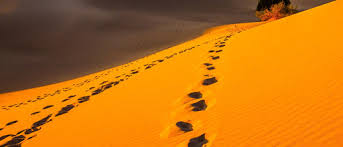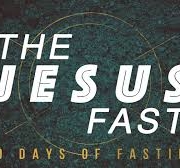Breaking the Fast
Lou Engle offers the following guidelines for breaking your fast. Trust his words. I have learned the hard way over the years that there is a right way and a wrong way to come off a fast.
Lou Engle: This addendum is to provide you with a guide for how to break a fast in a healthy and safe way. This guide is provided by a good friend of mine named Dr. Vaughn Lawrence, who is a naturopath doctor. He has done extended fasting, has studied the subject, and can equip you on how to break a fast and better understand the health dimensions of lifestyle fasting. I am glad to direct you to this video and written article on the spiritual and physical wisdom of breaking a fast. If you have fasted with just water, make sure to watch this video.
Wisdom should be considered when breaking a fast. Too many have reported severe pain, discomfort, cramping, and even death when giving themselves over to appetite too quickly.
“…only a wise man knows how to break a fast.” – George Bernard Shaw
We must understand that in fasting, the body shuts down all digestive processes as it goes into “house-cleaning” mode to begin the healing of damaged cells, tissues, and organs at a deep level. Throwing too much food into the body too quickly can throw the body into shock and the consequences can be severe physically, emotionally, and spiritually.
“For if you live according to the flesh you will die; but if by the Spirit you put to death the deeds of the body, you will live.”
This addendum is to provide you with a guide for how to break a fast in a healthy and safe way. This guide is provided by a good friend of mine named Dr. Vaughn Lawrence, who is a naturopath doctor. He has done extended fasting, has studied the subject, and can equip you on how to break a fast and better understand the health dimensions of lifestyle fasting. I am glad to direct you to this video and written article on the spiritual and physical wisdom of breaking a fast. If you have fasted with just water, make sure to watch this video.
Wisdom should be considered when breaking a fast. Too many have reported severe pain, discomfort, cramping, and even death when giving themselves over to appetite too quickly.
“…only a wise man knows how to break a fast.” – George Bernard Shaw
We must understand that in fasting, the body shuts down all digestive processes as it goes into “house-cleaning” mode to begin the healing of damaged cells, tissues, and organs at a deep level. Throwing too much food into the body too quickly can throw the body into shock and the consequences can be severe physically, emotionally, and spiritually.
“For if you live according to the flesh you will die; but if by the Spirit you put to death the deeds of the body, you will live.”
“But the fruit of the Spirit is love, joy, peace, long suffering, kindness, goodness, gentleness, self-control .” – Galatians 5:22-23
“Whoever has no rule over his own spirit is like a city broken down, without walls.” – Proverbs 25:28
The Bible makes it clear that to show we have given the Lord control over our spirit is to tame the flesh, especially when it comes to food and appetite. Fasting is difficult, but we do it out of desire to pursue the Lord’s heart, practice self-control, and receive revelation from the Lord. However, consider this: it is more difficult to break a fast with self-control than to actually fast! I completed a 40-day water fast one time and was way too proud of myself for this accomplishment. As I lay in bed, weak, emaciated, and barely able to think or move, I heard the Lord as clear as ever before in my life and it struck my heart like a dagger. He said, “I don’t just want your 40 days, I want your every day.”
John the Baptist was known most for his lifestyle of prayer and fasting that ushered in the first coming of Christ. As we earnestly seek the second coming of Christ, the Lord is going to raise up a generation of John the Baptists who will choose the spirit over the flesh by seeking to walk out self-control in all aspects of life. This allows the Lord greater access to our hearts so that He can move through us not just during a fast but afterward as well.
It is important to seek the Lord on how He would have you transition after extended fasting as it is all too easy to find ourselves deep into self-indulgence within a very short matter of time. I strongly believe that what we do after a fast is just as important to the Lord as what we do during a fast. In such a time as this, the Lord is calling a generation to draw near through a lifestyle of prayer and fasting. This will look different for each of us as we answer His call.
Here are some tips for breaking a fast. The level of caution you need to exercise is dependent upon the depth and length of your fast. Short fasts that include food require less caution, but should still refrain from bouncing back to indulgence. Longer fasts on juice or water require extreme caution to avoid serious consequences.
1. BREAKING A WATER FAST :
– Water fasts should be broken with fresh juice only, in small amounts, approximately 4 oz. every 1-2 hours the first day and 8 oz. every 1-2 hours the second and third days.
– The best juices for breaking a water fast are from raw fruits and vegetables. The best are orange, watermelon, grape or pineapple. Note: I do not recommend breaking a water fast with apple juice because it can cause severe pain and cramping . Cucumber, celery, and other green juices are good as well, or a combination of fruits and vegetable juices.
– When breaking a water fast, spend a minimum of 3-5 days on only juices before eating solid foods. The solid foods can be the same as those listed below as when breaking a juice fast.
2. BREAKING A JUICE FAST :
– Juice fasts should be broken with raw fruits and vegetables, blended warm soups, steamed vegetables, or small amounts of broth. Keep it blended and easy to digest for at least a week or more. Eat very small portions every couple of hours so you don’t become too ravenous with appetite.
– As a general rule of thumb, eat fruits, vegetables, and greens (raw or cooked) for at least 2 weeks following a fast. Continue to avoid grains, fats, starches, and proteins. Please add these foods back in slowly and intelligently so you don’t shock your body.
3. THE DANGER PERIOD:
– The 2 weeks following a fast is called the “danger period”. Ravenous and extreme voraciousness must be kept under control, which can last approximately 2 weeks. This desire will disappear after 2 weeks and is an excellent exercise in practicing self-control.
– On a physical level, voracious eating after a fast is not only dangerous, but can undo much of the benefits of the fast related to healing, tissue regeneration, and reversing the sickness and disease processes that occur in the human body.
– It is estimated that you should take nearly just as long to return to a normal diet of foods as you chose to fast. I encourage people to follow a Biblical diet of fruits, vegetables, whole grains, and clean meats as advised in Leviticus 11 for long-term health.
If you are familiar with the ancient desert fathers, these monks were warriors who were always encountering the demonic and fighting for people and cities in the land. When another monk named Abba Pambo approached the great Abba Anthony and said: “Give me a word Father,” Abba Anthony responded, “… keep your tongue and your belly under control.”
I believe a fasted lifestyle can separate us from the temptations of this world and is absolutely crucial for what is coming in the next move of the Lord. God is looking for empty vessels and fasting is a great way to empty yourself out before the Lord. God bless you in your journey with the Lord!
Please watch our video for more information on breaking a fast: youtube.com/watch?v=dvKi2Fynrsw





